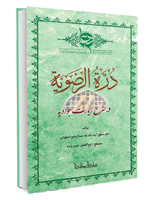- Prophet Muhammad (P.B.U.H&HF): Whenever one of you is needy and brings that to other people, he will not be satisfied. and Whenever someone is needy and brings that to Lord, he shall give him what he wants. sooner or later.
- Imam Sadiq (As.): Whenever you had tenderness in your heart, Pray. because your heart doesn't get tender unless it's pure.
- I told to Imam Baqir (A.S): “What is the meaning of “truly, Ibrahim was awwah and patient”? He replied: “Awwah means (the one who is) praying (to) and wailing (for God) a lot.””
- “Two people, who have acted alike, enter the heaven, but one of them sees the other one in a higher place. Then, he says: O’ Lord! How come has he a superior place in comparison to me while we acted alike? God the Almighty replies: “because he asked Me (whatever he needed) and you did not do that”.
- “The most knowledgeable person to God is the one who asks more from Him”
- “Whoever prays a lot, the angels say: This voice is familiar (to us) and this is the supplication which is accepted and this is the need which is provided”
-
The Holy Prophet (peace be upon him and his Household):
-
وَ لَوْ عَرَفْتُمُ اللَّهَ حَقَّ مَعْرِفَتِهِ لَزَالَتِ الْجِبَالُ بِدُعَائِكُم
If you knew god the way you should’ve known, Mountains definitely will be moved by your supplications. - Crying out of fear of God is the key to his mercy, it’s a sign for his acceptance and it’s a door to answering [supplications]
- Pray to God and believe in his answeres. But understand that God won't accept prays from an unwitting oblivious heart.
Conditions for the Acceptance of Supplication
بسم الله الرّحمن الرّحیم
Conditions for the Acceptance of Supplication
Authors: Maryam Haji AbdolBaqhi
Translator and editor: AbdolQhadir Mojahid Ghaznavi
Summary
this writing discusses the reasons for the need for prayer, which include: 1. Responding to the innate human need for worship, 2. Avoiding arrogance and self-centeredness, and 3. Manifestation of the astonishing power of human desires and having the keys to divine treasures. It then delves into the important question of how to manage and control these amazing powers and achieve our desires, which involves asking God himself for it and not seeking happiness for ourselves alone while being narrow-minded and limited. The conditions for the acceptance of supplication are then examined, first focusing on internal factors and then on external factors including etiquettes, places, and times of supplication. Internal factors such as sincerity, praying in the language of nature, knowledge, faith, and acting accordingly, presence of heart, and necessity are mentioned, followed by an explanation of the reasons for the delay in the acceptance of prayer. Key words: prayer and supplication, need, desire, nature, prayer etiquettes.
Keywords: prayer and supplication, need, desire, nature, supplication etiquettes.
The Cause of the Need for Supplication
1. The emergence and flourishing of the innate human nature of monotheism
"Prayer" is the highest response to the innate human need for worship and supplication. A person who appreciates beauty and goodness is naturally drawn towards absolute beauty and perfection, becoming engrossed in praising and glorifying it. The innate nature of seeking God necessitates a direct and heartfelt connection with God.
"Supplication" is the link that connects humans to God. In the Quran, God says: "And I did not create the jinn and mankind except to worship Me." (51:56) The result of worship is the establishment of closeness and connection with the Creator and acquiring the color of the Creator. It is mentioned in narrations that "The best worship is supplication." In this perspective, the purpose of supplication is not just to have one's supplications answered, but rather, it serves as a means of establishing a connection and closeness.
In reality, supplication is a direct and unmediated relationship between the worshipper and the Creator. Praying, calling upon God, and asking from God lead to the realization of monotheism, acknowledging the oneness and uniqueness of God. In a letter to his son, the Commander of the Faithful says: "God has not placed a veil or barrier between you and Himself, nor has He made you unable to approach Him without an intermediary."
Strengthening the spirit of humility and modesty in a person
The mechanism of prayer leads to the destruction or reduction of arrogance and pride in a person's existence, transforming the self-centered individual into a God-centered being. In the Quran, God considers not praying as an act of arrogance and seeking greatness from the human being: "Call upon Me; I will respond to you." Surely those who are too proud to worship Me will enter Hell, utterly humiliated. (40:60)
The manifestation of the astonishing power of human
God has granted a special choice to humans for the preservation and continuity of direct and unmediated relationship between Himself and His servants. That special choice is the possession of the key to all divine treasures. Perhaps this can be expressed as prayer being a path and behavior within oneself, and the conditions for the acceptance of prayer being an effort to recognize oneself and uncover the infinite power hidden in the human soul.
1. Possessing the key to divine treasures
In this world, all affairs unfold according to divine decree and destiny. Without God's permission, not a leaf falls from a tree, and the management of all matters of existence and the affairs of creatures are under the absolute Lordship of God and within His power. However, God has willed that a portion of the affairs of the world and many events and occurrences come into play through the channel of human supplication and request, meaning that prayer itself is a part of destiny and itself a cause. We know that God sets affairs in motion through His own specific causes and reasons: "Allah refuses to do things except through their causes." Causes and reasons influence each other, one cause takes precedence over another cause, and one cause becomes an obstacle to the effect of another cause. The divine being, against whose power and will no one can resist, has entrusted and assigned to humans the key to all matters, events, riches, and treasures so that humans may will and seek to realize many matters, just as Ali said: "God has placed the key to the treasures of the heavens and the earth in your hands because He has given you permission to request and supplicate." God says: "Call upon Me; I will respond to you." And "I respond to the invocation of the supplicant when he calls upon Me." (Quran 2:186)
2. The astonishing power of human desire and wish
It should be noted that the reality of supplication is the same as seeking and desiring from the heart and the innate disposition of the human being, and the "language" is only the manifestation and appearance of that internal desire and inner seeking. Imam Khomeini (RA) refers to prayer as "request in the language of potential" and believes that the grace of God is complete and superabundant, and if the grace does not manifest, it is because the recipient lacks the readiness and willingness to accept. As the saying goes, if a beggar is lazy, whose fault is it? Allama Tabatabai calls supplication as "request in the language of nature." To put it more clearly, if a person controls and manages his desires and wishes, existence comes under his control with the permission of God. Human beings harbor numerous desires and inclinations within themselves.
That a person can express their desires verbally and make their heartfelt intentions come true, reveals the power that God has bestowed upon the human soul. The Quran describes the people of Paradise as having unrestricted freedom to fulfill their desires: "And for you therein is whatever you desire of [life] and for you therein is whatever you request [or wish]" (Quran 41:31). In reality, Hell and Paradise are the realization of desires, intentions, and aspirations of the people of Hell and the people of Paradise. It seems that human desires and wishes are linked to their realization, and it is sufficient for a person to learn what to ask for and from whom, what desires to have, and from whom to seek refuge?
The way to achieve our desires
Now supplication is the way to achieve our desires and wishes, and it has been taught to us: "Verily, the reward is in accordance with the intention." Divine reward and gifts are in proportion to the intention and desire of the supplicant. The Quran and the teachings of the Infallibles instruct humans that observing the following points is essential for a person who seeks and desires:
1. Sincerity
Since supplication is a direct and unmediated connection between the servant and his Lord, by turning away from everything other than God and by establishing a pure bond between human and God, the door for the influence of Satan is closed. Such a state, which only considers God without paying attention to others and without attaching oneself to causes and reasons, is the secret of prayer and its acceptance: "Say, 'What would my Lord care for you if not for your supplication?'" (Quran 25:77)
2. Natural Desire
A person must know what desires they nurture and what they seek, desires that bring about their own or others' destruction or burdens to humanity are not worthy of fulfillment, and no human nature desires their realization, even if they express them.
3. Control of power
A person must find and manage their extraordinary potential, be aware of it, manage and control it. Of course, (religious teachings are responsible for providing awareness and guidance for this ability), so that he does not cause trouble with inappropriate desires.
Content of supplication
With this introduction, it is essential to know which supplications should be allowed to get into our heart and expressed by our tongue.
1. From God, we should ask Himself: The nature of us as humans is desiring to meet the God.
Much of our efforts and restlessness is for calming down the inner turmoil of His desertion and being away from Him. God is endless and infinite, and has created the human, who is His successor, to seek infinity, to become a good person and to reach His presence.
2. Let's seek from God things that are everlasting and we should not ask for restricted or limited desires. Our determination should be focused on the conditions for supplications response and lofty and enduring concepts, not on lowly and transient matters.
3. Let's pray for everyone: a person who realizes that their destiny is tied to the destiny of all humans in all ages and all beings, and that they are part of the whole existence, floating in the system of creation and moving towards perfection, cannot supplicate merely for himself, while ignoring others.
4. Let's pray for the relief of Imam Zaman (Imam of the Era), may God hasten his reappearance:
In fact, praying for the complete realization of human happiness (including individual, social, material, spiritual, worldly, and otherworldly happiness) is the main supplication of human beings. A person reaches complete happiness when all aspects of perfection and happiness dominate both individual and social life, and this is the realization of the society of Imam Mahdi and the real and comprehensive appearance of Islam. Praying for the his relief and reappearance equals praying for one's own happiness, the happiness of humanity, and human society. In the narrations, we have: "Waiting for the relief is worship." And it has also been narrated: "The best worship is waiting for the relief (reappearance of the invisible Imam)." Or Imam himself said: “Pray for us (my relief), for the reappearance and the resolution of your affairs are in it”.
5. We should balance our material and spiritual aspirations: since the world is the farming-field of the hereafter, our Lord, give us good in this world too (Baqarah, 201/201; Introduction and necessity "and in the end good" is. So, just as the balance between material and spiritual desires is preserved in the Quran itself. 78 cases of material prayer and 78 cases of spiritual prayer. (11 We also consider such balance.






